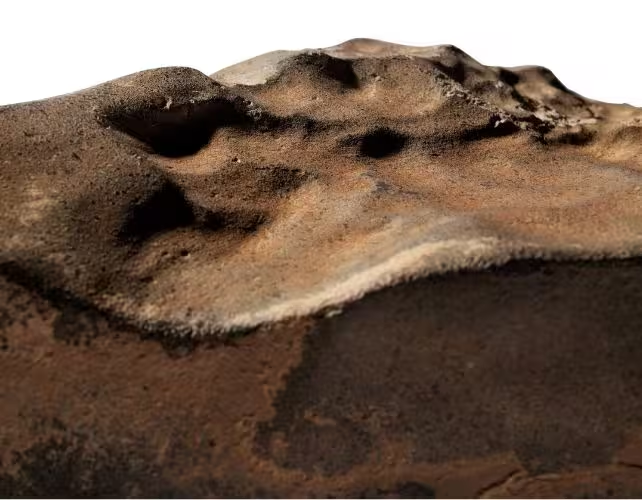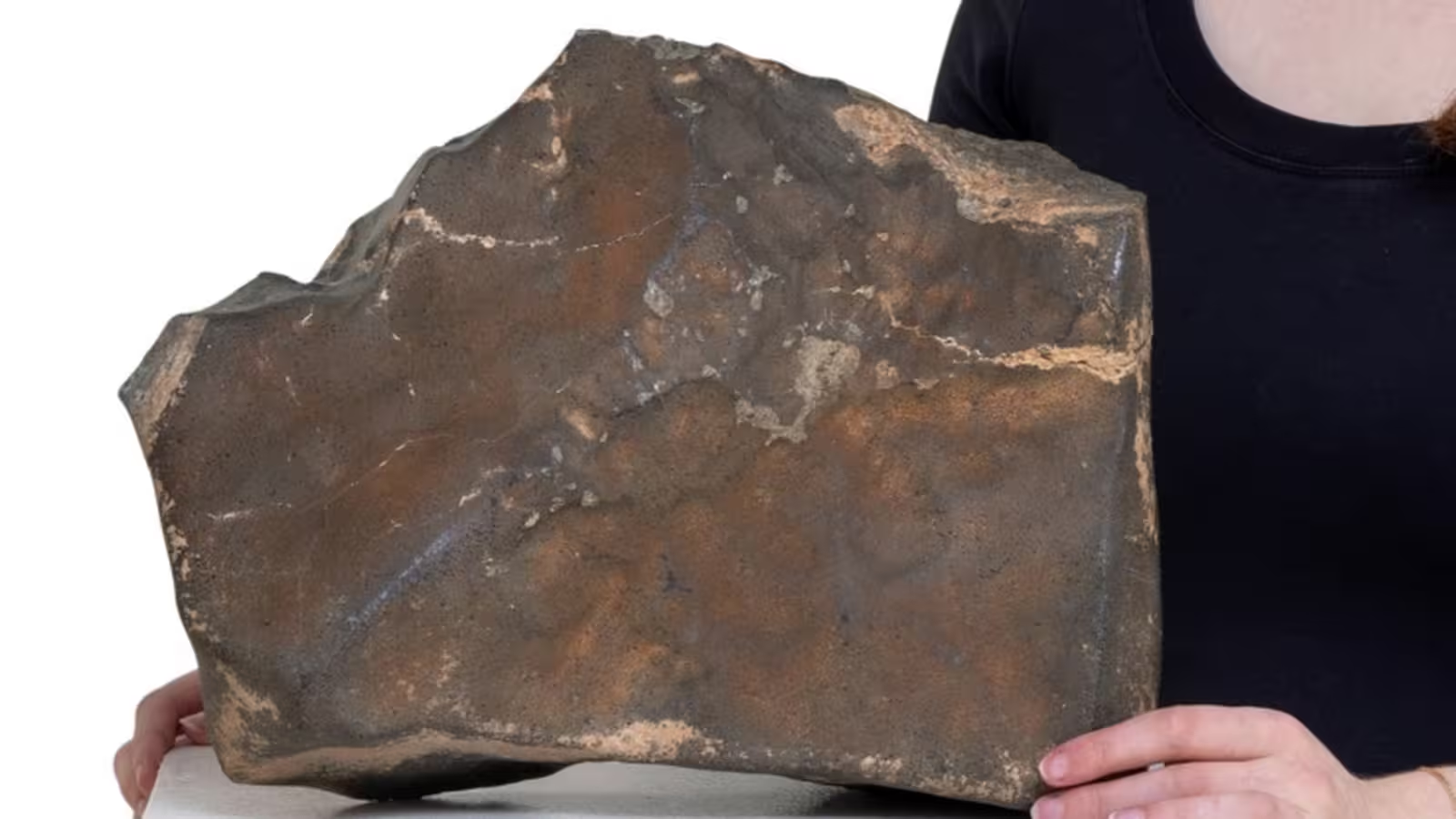3 Minutes
The Biggest Martian Meteorite Ever Found on Earth
The largest known piece of Mars to ever reach our planet is set to make history at Sotheby’s this month, where experts believe it could fetch up to US$4 million. Identified as NWA-16788, this remarkable Martian meteorite weighs 24.67 kilograms (54.39 pounds), surpassing the previous record-holder—Taoudenni 002 discovered in Mali in 2021—by nearly 70 percent.
Discovery and Scientific Significance
NWA-16788 was discovered in November 2023 by a dedicated meteorite hunter exploring the remote Agadez region of Niger, a location better known for significant dinosaur fossil finds than meteorites. A small sample sent to the Shanghai Astronomy Museum confirmed its extraterrestrial Martian origin, making it a prized specimen for scientists and collectors alike.
Geological and Cosmic Background
The meteorite’s physical features are especially important for planetary science. According to Sotheby's, it "shows minimal terrestrial weathering," indicating that its structure and chemical composition have remained largely unchanged since landing in the Sahara Desert. This points to a recent arrival from space, making it a rare and uncontaminated sample.
The rock’s mineralogical makeup includes a high content of maskelynite glass—a mineral produced when a powerful impact melts rock—along with pyroxene and olivine. Scientists believe that NWA-16788 was ejected from Mars after an intense asteroid collision, ultimately making its interplanetary journey to Earth.

Debate over Private Sale Versus Public Science
The auction of such a significant Mars meteorite raises questions within the scientific community. Paleontologist Steve Brusatte of the University of Edinburgh voiced concerns, stating, “It would be a shame if it disappeared into the vault of an oligarch… It belongs in a museum, where it can be studied and appreciated by the public.”
On the other hand, planetary scientist Julia Cartwright of the University of Leicester offered a more optimistic view, suggesting that scientific investigation can continue regardless of ownership: “The scientific interest will remain, and the new owner may be very interested in learning from it, so we may still gather lots of science from this.”
Upcoming Auction and Future Prospects
Sotheby’s has set the auction for July 16 at 14:00 UTC, where NWA-16788 is expected to attract global attention from collectors, research institutions, and space enthusiasts. Beyond its extraordinary size, the meteorite’s scientific value could unlock further secrets about the formation and geological evolution of Mars, offering insights into planetary processes that shaped our Solar System.
Conclusion
The upcoming sale of NWA-16788 highlights the intersection of planetary science, private collecting, and public curiosity about the cosmos. As the largest Martian meteorite ever found on Earth, its journey from the Martian surface to the deserts of Niger—and now possibly to a private collection—underscores the enduring human fascination with space exploration and our universe’s rarest relics.
Source: sciencealert



Comments